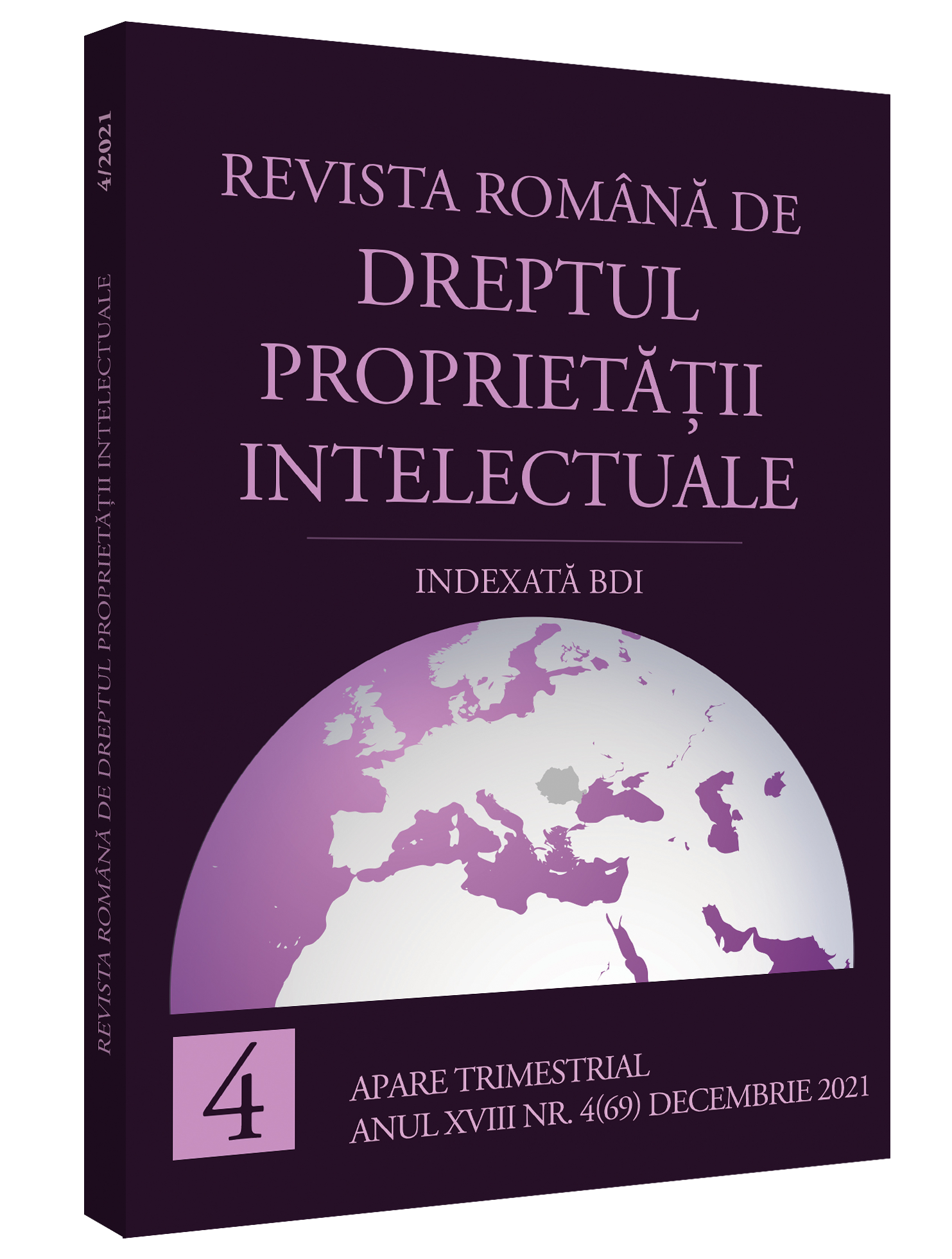Analiza motivului absolut de refuz la înregistrare a mărcilor Uniunii Europene reprezentat de condiţia liceităţii. Aspecte jurisprudenţiale relevante dezvoltate de CJUE şi TUE
Analysis of the absolute ground for refusal to register European Union trade marks represented by the condition of lawfulness. Relevant case law developed by the ECJ and the GC
Author(s): Andreea LivădariuSubject(s): Law, Constitution, Jurisprudence, Civil Law, EU-Legislation
Published by: Asociaţia Ştiinţifică de Dreptul Proprietăţii Intelectuale
Keywords: absolute ground of refusal; lawfulness; public order; indicative sign; consumer;
Summary/Abstract: The condition of lawfulness of a trademark has been transposed into four categories of trade marks which may be refused for registration on the ground that they are unlawful, respectively: trade marks which are excluded for registration per se, trademarks excluded by international agreements, trademarks excluded because they infringe public policy and good morals and trade marks which are misleading. Given that the lawfullness of a trademark has a broad purpose, it protects consumers against misleading marks, it protects indicative signs by conferring a privileged status under specific legislation, but it also protects values enshrined in public policy and morals, I will examine this condition of protection of a trademark by structuring the reasons for refusal of registration according to the purpose pursued by the legislator.
Journal: Revista Română de Dreptul Proprietăţii Intelectuale
- Issue Year: 2021
- Issue No: 4
- Page Range: 136-160
- Page Count: 25
- Language: Romanian
- Content File-PDF

